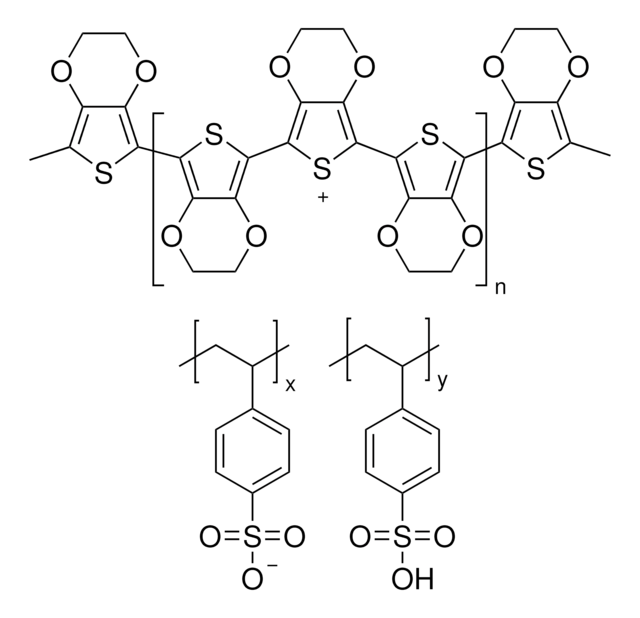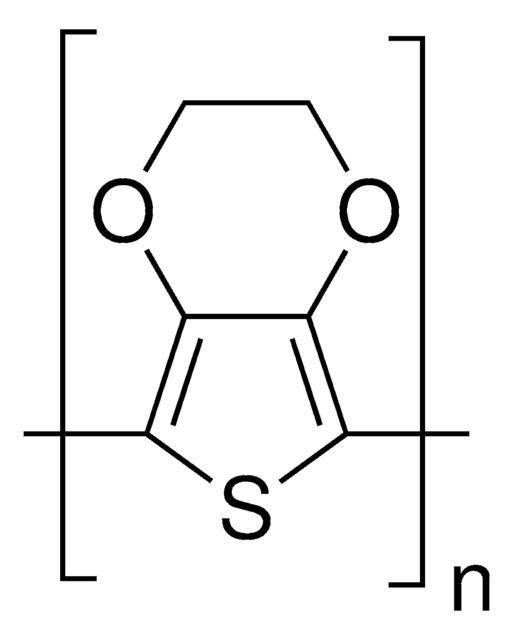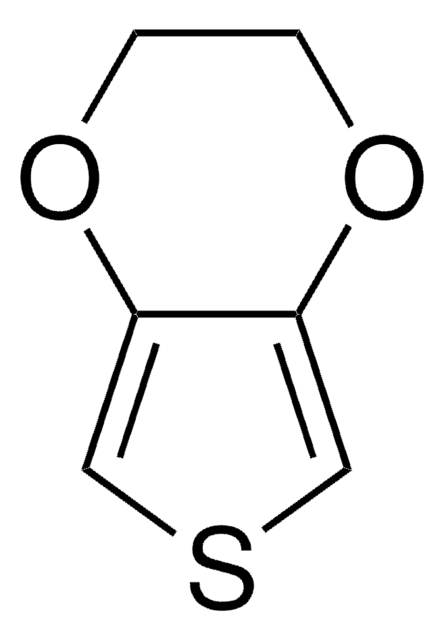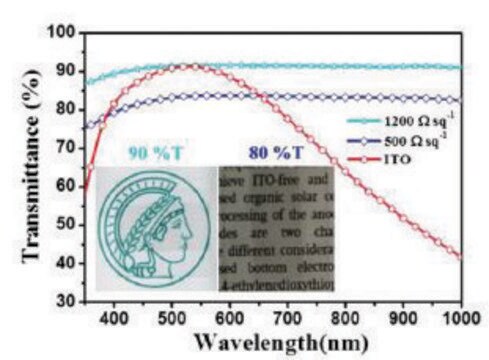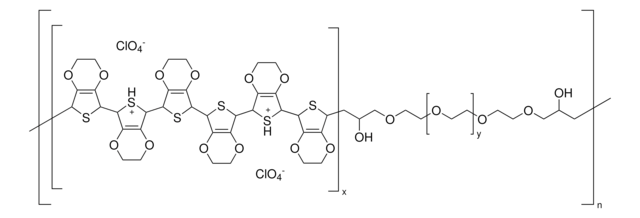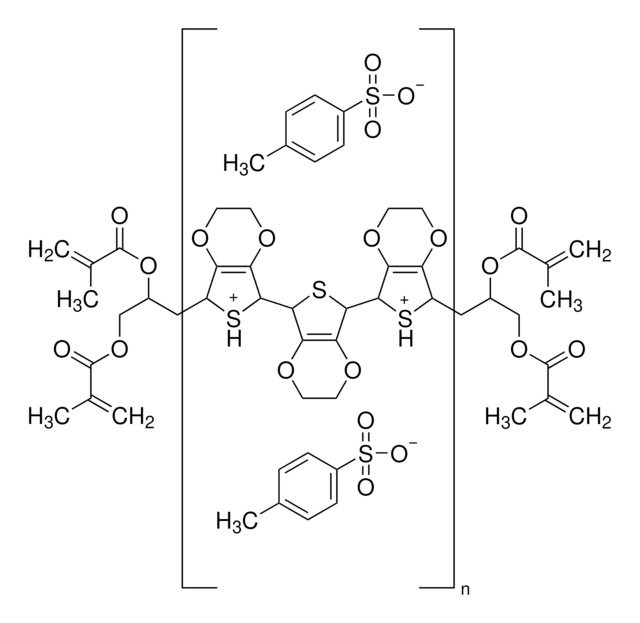739324
PEDOT:PSS
high-conductivity grade, 1.5% aqueous dispersion, neutral pH
Synonym(s):
Orgacon™ N-1005, PEDOT:PSS, Poly(2,3-dihydrothieno-1,4-dioxin)-poly(styrenesulfonate)
About This Item
Recommended Products
Product Name
Poly(3,4-ethylenedioxythiophene)-poly(styrenesulfonate), 1.5% in H2O, high-conductivity grade, neutral pH
Quality Level
form
liquid
greener alternative product characteristics
Design for Energy Efficiency
Learn more about the Principles of Green Chemistry.
sustainability
Greener Alternative Product
concentration
1.5% in H2O
resistance
<100 Ω/sq, >70% visible light transmission (40 μm wet)
refractive index
n20/D 1.335
pH
5-7
viscosity
<100 cP(22 °C)
density
0.982 g/mL at 25 °C
greener alternative category
storage temp.
2-8°C
Looking for similar products? Visit Product Comparison Guide
General description
- low band gap
- good optical properties
- high conductivity
- low redox potential
- easy processing
- tunable film forming ability
Application
Legal Information
Signal Word
Danger
Hazard Statements
Precautionary Statements
Hazard Classifications
Eye Dam. 1 - Repr. 1B - Skin Irrit. 2
Storage Class Code
6.1D - Non-combustible acute toxic Cat.3 / toxic hazardous materials or hazardous materials causing chronic effects
WGK
WGK 3
Flash Point(F)
Not applicable
Flash Point(C)
Not applicable
Choose from one of the most recent versions:
Already Own This Product?
Find documentation for the products that you have recently purchased in the Document Library.
Customers Also Viewed
Articles
A detailed article on conducting polymer materials for flexible organic photovoltaics (OPVs) applications.
In the emerging field of organic printable electronics, such as OLEDs and organic photovoltaics (OPVs), there is a significant need for improved organic conducting and semiconducting materials. This paper reports our recent progress in two fields: 1) the development of solvent-based dispersions of the intrinsically conducting polymer (ICP) poly(3,4- ethylenedioxythiophene) (PEDOT) and 2) the synthesis of new electron-deficient (n-type) semiconducting polymers.
Find advantages of inorganic interface layer inks for organic electronic & other applications.
Progress in Organic Thermoelectric Materials & Devices including high ZT values of >0.2 at room temperature by p-type (PEDOT:PSS) & n-type (Poly[Kx(Ni-ett)]) materials are discussed.
Global Trade Item Number
| SKU | GTIN |
|---|---|
| 739324-100G | 4061832884035 |
Our team of scientists has experience in all areas of research including Life Science, Material Science, Chemical Synthesis, Chromatography, Analytical and many others.
Contact Technical Service